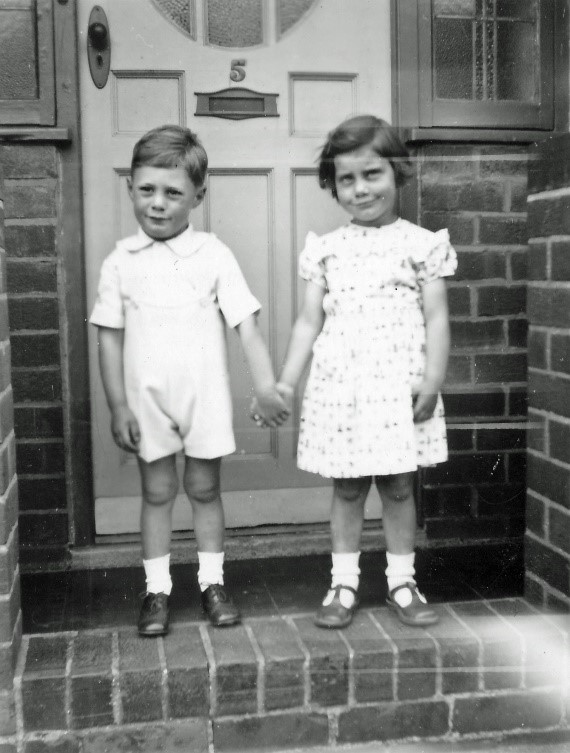.JPG/:/cr=t:0%25,l:0%25,w:100%25,h:100%25/rs=w:1280)
Introduction

I love Christmas, I love everything about It., The Christmas songs, tree decorating and all the traditions. I particularly like Christmas movies, like “How the Grinch stole Christmas”, and Scrooged. But my favorite is the 1951 version of A Christmas Carol with Alastair Sims. The story has been told 1000 different ways since Charles Dickens wrote it, yet its truth still rings out today.
The Christmas Carol story is about a man who due to the heartaches of life, and his ambition, becomes hardened to the world. He makes the acquisition of wealth his primary concerned. He also becomes very greedy, refusing even to give a few extra chunks of coal to heat his workers in his business.
Scrooge gave up his heart, his soul, in exchange for his greed.
Jesus talks about this behavior in Mark 8:36-37
What good is it for someone to gain the whole world, yet forfeit their soul? Or what can anyone give in exchange for their soul?
Our soul is a person’s distinct identity (unique personhood), their individual personality. Our soul is the direct result of God breathing His gift of life into us, making us an ensouled being. Our soul is the seat of our affections and will.
Jesus further warns us about being careful about what we treasure in Matthew 6:21-23 (NIV)
For where your treasure is, there your heart will be also.
Our heart is the affective center of our being and contains the capacity of moral understanding. It establishes who we really are. The heart is mentioned over 800 times in Scripture, but it never refers to the literal physical pump that drives the blood. Jesus is talking about what makes us who we are.
When we make the pursuit of wealth, possessions, and stuff the focus of our soul, we will lose our heart. We will lose our unique individuality and become enslaved to our wealth. Instead of us owning our wealth, our wealth owns us. That is what happened to Scrooge.
The more our minds are preoccupied with wealth, the more we lose our soul, and our wealth becomes a replacement for your identity.
Jesus’s warning is very applicable to our world today. The acquisition of goods and services has never been easier. Online shopping, combined with easy credit, has made buying as simple as a click of a mouse. Yet with all this acquisition, are people happier?
“Researchers have found that 69 percent of people feel trapped in the same old routine, and over 40 percent are unhappy with their lives. Just three in 10 people in Britain are “happy with their lives,” a new study has revealed. Money worries, dead-end relationships, and unfulfilling jobs were among the reasons many said they are unhappy”[ii].
Jesus does not want us to live like this. He wants us to prosper, enjoy joy, and live in peace, yet all three of these desires of his Father eludes many people.
Wealth is not evil
All of the patriarchs in the book of Genesis were extremely wealthy. Wealth is not evil. In fact, it is an excellent blessing.
It is the love of wealth that is the problem. The Apostle Paul tells us the truth about the love of money in 1 Tim 6:10.
“For the love of money is a root of all kinds of evil. Some people, eager for money, have wandered from the faith and pierced themselves with many griefs”.
If we let the love of money take hold of our hearts, it will eventually lead us away from our faith. But there is a solution. That solution is to practice generosity.
Generosity
Generosity is an act of going beyond what is expected of you. It is the act of giving freely.
Some studies have shown that there are ties connecting generosity to your health!
· It can lower your blood pressure
· It can help reduce stress
· It could help you live longer
· It can boost your mood
Generosity is not limited to money. It can include your:
· Time,
· Wisdom
· Skills and talents
Wealth can be used for good.
Jesus was once asked what the greatest commandment was. He replied in Matthew 22:36-40
“‘Love the Lord your God with all your heart and with all your soul and with all your mind.’ This is the first and greatest commandment. And the second is like it: ‘Love your neighbor as yourself.’ All the Law and the Prophets hang on these two commandments.”
We see many remarkable examples of people today who are using their Wealth for Good. Let’s look at a few examples. These people have embodied the second commandment like few people I know.
Bill and Melinda Gates Foundation
15 years ago, I was in Africa, and I started to read a magazine I found out that Bill Gates has been giving away billions of dollars in Africa to fund different programs. In North America, at that time, there was no mention of the philanthropy that he was doing. Since that time, I have followed this remarkable individual and the difference he is making with his wealth.
This is the motto of his foundation.

“All lives have equal value. We are impatient optimists working to reduce inequity.”
Here are a few examples of what he’s been doing.
Water and sanitation
Bill has a remarkable mind and is an avid reader, and he uses his mind to look at problem’s others have not solved. Much of the poor and the developing world die because they do not have clean water. The real reason they don’t have clean water is they have poor sanitation. The latrines dump into their water supply. Bill used his money and mind to develop a low-cost toilet that does not require water or power and is now being installed in South Africa. He also developed a citywide sanitation system that does not use electricity and is now cleaning one’s third of a city’s human waste.
Polio
Joseph Salk invented the cure for polio 70 years ago, yet polio is still not eradicated in the world. It’s not that there’s not a cure. It’s just the cure can’t get the people who need it. Bill is committed to eradicating polio from the earth, and although it’s gone in Western countries, Africa still suffers from this disease. Nigeria is the primary problem area. Although they have an immune immunization program, they still have outbreaks. Bill studied the problem and figured out that it was because they did not have good maps of Nigeria. As a result, people were being missed. Using his resources, he developed a comprehensive map of Nigeria and made it available to the immunization teams. Last year there are only 33 reported cases of Polio globally.
Inspiring the Wealthy
In addition to his own philanthropy programs, he is challenged the world’s billionaires to give way 50% of their wealth.
Many have chosen to do that. For example, Warren Buffett, one of the richest men in the world, has given at least 50% of his personal wealth to the Bill and Melinda Gates Foundation.
Andrew Carnegie

[X]
Andrew Carnegie was the richest man in the world in the 1890s. After a career spent on building steel mills, he turned his fortune and all of his effort into the transformation of society by the construction of libraries all over North America. He was committed to giving away all his wealth; however, he did not succeed. The Carnegie Foundation is still operating to this day. However, he did build 2200 libraries, and you can find them all through southern Ontario.
In 1890 public libraries were virtually nonexistent, and he knew that education was the key to breaking poverty, so he took his wealth and chose to invest in something he knew would change the world. His generosity is recognized globally. That’s his legacy.
Regular people generosity
Now some may think that these people have more money than what they know what to do with, so they can afford to be generous. Let’s look at a few people that are just ordinary folks that are also generous.
· A young girl, 12 years old who saw there that the playground equipment in her home town was all broken. She began to bake and sell muffins and raised $5000 and bought new playground equipment for her community
· A young man who bought groceries for a single mother in the grocery line
· Older women who makes baby blankets for new babies and gives them a way to new mothers she meets
· A family who took responsibility for a single-parent family at Christmas and bought them all winter clothes
· A stranger bought a women’s wedding dress
· A man helped another person by ending his commute and started taking him to work.[iv]
· A homeless Good Samaritan: This story has two parts. First, A homeless man named Shelby Hudgens spent hours pushing strangers’ cars that were stuck in a snowstorm in Colorado Springs.
· A stranger who watched Hudgens’ actions set up a GoFundMe account to help Hudgens find a place to live. Donors contributed more than $22,000.
· Buying someone a meal: A Texas man named Larry Clark stopped at a Chicken Express drive-thru after a busy day of holiday shopping, only to find that his credit card was declined. It seemed he did so much shopping that day that the credit card company got alarmed and put his spending on hold.
· A young cook working in the back pulled out his personal credit card and paid for Clark’s dinner,
· Giving away valuable jewelry: A widow had deposited a $1,850 engagement ring and wedding band along with a note into a Salvation Army Kettle. The anonymous woman said she wanted to donate the ring to honor her husband’s memory. “I’m hoping there’s someone out there who made lots of money this year and will buy the ring for 10 times its worth,”
How to be generous:
[v]
Here a few ideas to help you get started on your generosity journey.
1. Help cook or serve meals at a homeless shelter near you.
2. Visit a nursing or retirement home
a. Play scrabble, chess, dominoes, cards, etc.
b. Paint women’s nails
c. Bring in news articles/magazines and read to them
d. Bring in new technology and teach them about it
e. Play music for them
f. Lead them in a sing-along
3. Wake up every day and make a choice to compliment 5 people.
4. Start a fundraising page so that you can bring the change and join the fight against poverty.
5. Host a neighborhood cleanup cookout
6. Leaving a huge restaurant tip
7. Buy someone else’s groceries
8. Giving blood for decades
Facts
A recent article I read[vi]indicated the amount of wealth that would be required to make substantial transformations in the world.
· $25 billion could relieve global hunger, starvation, and deaths from preventable diseases in five years.
· $12 billion could eliminate illiteracy in five years.
· $15 billion could solve the world’s water and sanitation issues, specifically at places in the world where 1 billion people live on less than $1 per day.
· $1 billion could fully fund all overseas mission work.
Total cost $50 billion. This seems like a lot, however, currently, Christians give about $41 Billion each year[vii]. The average amount Christians give is about 2.5% of their income. So if Christians alone just increased the amount they gave toward these issues to 4% of their income, the world problems could be solved in 2 years.
Unfortunately, giving is on the decline. According to the 2018 Giving report[viii]in 2006, a quarter (24.6%) of all Canadian tax filers donated to charity. By 2015, that number had eroded to 20.4% or one-fifth of tax filers. Some may say well it is because the cost of living is so much higher. There have always been financial issues. For example, during the Great depression, Christian gave, on average, 3.3% today they give 2.5 %. The overall change is undeniable, people are becoming less generous, and as a result, charities have a harder time to make ends meet.
A fascinating fact is that the poor actually give a higher percentage of their income. The rich give away between 3 and 4 percent of their incomes, poor people tend to give away between 4 and 5 percent. Both groups give away significantly higher proportions of their income than middle-class families. The question begs to be asked, why? What has changed in society that has caused this dramatic change in people’s behavior?
There are three behavior patterns that I believe contribute to the problem.
Bystander Mentality
It is all too common that a person is attacked and beaten up, and no one phones the police. The reason is they assume someone else is going to do it, it’s called bystander mentality. The same thing happens in the area of finances. People think that someone else will do it, perhaps the billionaires of the world. As I pointed out, many billionaires are making a difference. Many are not.
False Identify
Wealth has always been a status symbol, The challenge of keeping up with the Joneses is a problem everyone faces. It is all too easy to get caught up in the belief that you need a bigger house, a better car, a cottage, and the list goes on and on and on. None of these things are bad, but if we draw our self-worth from these things, we embrace a false identity, and in the end, will lose our soul.
Poverty heart
The last and all too common behavior is called the poverty heart. Many wealthy people suffer from this. It is due to generational pressures from parents or grandparents or even experiences of their own childhood. It manifests in a particular behavior that although a person may have money, they still buy cheap things and struggle with buying good things. They often feel uptight about money most of the time.
My mother was raised in poverty. They had seven siblings lived on whatever they grew in their gardens. Food shortage was a problem. When my mother went into the military during World War II, she had never seen so much food. Poverty hurts. It robs a person of a sense of security. It leaves them afraid there won’t be enough and often hoarding is the result. Poverty has a spiritual pressure associated with it. A pressure that impacts generations. I was impacted by it although I never lived in poverty. I struggled with a poverty heart all my life.
I recently went on a holiday and purchased a hotel resort; that was a bit cheaper, and it ended up being a bad experience. I was distraught, the Lord showed me that I had a poverty heart.
I made a conscious effort to receive ministry for this, and I confessed the sins of my ancestors and myself and for embracing the lie that God cannot provide for me. I renounced that lie and embraced the truth that God is my provider, and that He will provide the finances I need for my home. As a result of these simple prayers, there’s been a significant breakthrough in my life in this area.
Freedom is what the Lord wants us to live in, but the bondage of a poverty heart can deeply restrain us from following his commandment to love our neighbor as ourselves.
If you have a poverty heart, you may find it difficult to be generous because of the fear that there will not be enough. Jesus wants to set you free from this. He wants to be free from all anxiety regarding finances.
Close
God wants us to follow his commandments and change the world.
When I see people like Bill Gates and Andrew Carnegie changing the world, they use their mind, their strengths, and their wealth, and they love their neighbors as themselves.
All of us can give some money, our strengths, talents, and mind to solve problems facing the world today.
There are some actions that we need to do, however, to accomplish this.
1. We need to turn away from the lie that we should not concern ourselves with other’s physical and educational needs. God cares about all mankind, and so should we. It’s a false belief to think that God is only concerned about the spiritual condition of our fellow man.
2. We need to free ourselves from stuff so we can be generous. We need to challenge ourselves. Do we really need some of the things we buy? For example one young man simply[ix]cut out the amount of money he was spending on expensive coffees and found he saved $225 per month, which he could give away.
3. We need to forgive the generations past, and ourselves for the impact of embracing a lie that God will not provide, and embrace the truth He is our provider. He will provide.
4. We need to repent of the love of money and adopting a false identity based on wealth and possessions. All our things will pass away.
5. We need to plan to give and plan to save. Consistent monthly giving needs to be planned for.
Generosity is the heart of the Lord. It needs to be our heart, as well. John Bunyan said,
“You have not lived until you have done something for someone who can never repay you.”
Remember Scrooge. He decided to change in one night, and he became generous. As he did, he became happier and happier. This can happen to you. It is available to all.
I love what Winston Churchill said about giving.
“We make a living by what we get. We make a life by what we give.”
Merry Christmas
Bill
[i] Renown Pictures
[ii] https://www.telegraph.co.uk/news/uknews/11362246/Just-three-in-10-people-feel-happy-with-their-lives.html
[iii] https://www.gatesfoundation.org/
[iv] https://www.cbsnews.com/media/10-inspiring-acts-of-generosity/
[v] https://lifeoutofthebox.com/2015/10/22/incorporating-generosity-in-our-daily-life/
[vi] https://relevantmagazine.com/love-and-money/what-would-happen-if-church-tithed/
[vii] https://churchleaders.com/pastors/pastor-how-to/151049-brian-dodd-generous-church-ten-top-characteristics.html
[viii] https://www.canadahelps.org/media/The-Giving-Report-2018.pdf
[ix] https://www.becomingminimalist.com/10-simple-ways-to-become-a-more-generous-person/
{x} https://en.wikipedia.org/wiki/Jefferson_Carnegie_Library







